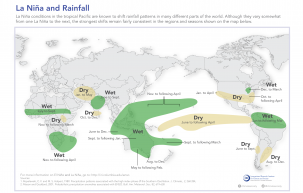climate adaptation9
-
The Climate Crisis and the Transition to a Renewable Economy
What I am betting on is the growing sense of awareness and understanding of environmental issues among the people of the world. It could be that my personal perspective is a little warped. I’ve seen the environmental issue move from the outer fringes to the center of our political agenda.
-
Fossil Fuel Companies Need to Become Renewable Energy Companies
No one should underestimate the scale of the challenge that confronts humanity. It will require new technologies and changes in infrastructure, organizational capacity, economic incentives and public policy.
-
Moving the Global Economy Toward Sustainability
Using something finite and dumping it into a hole in the ground is less efficient and more costly than a system build on photosynthesis, renewable resources, and reuse of finite resources. In other words, an organization managed according to the principles of sustainability should be able to outcompete the organization sticking to the old, polluting…
-
The Technological World and the Risk of Nuclear Power
The modern economy and our way of life depend on new and advancing technology. It especially depends on energy technology.
-
Slowly Moving to Protect the Environment
In some cases we do not understand the impact of human actions on the planet and we need to do more observation and analysis to understand those impacts. In other cases we don’t really know how to repair the damage once it has been done.
-

Optimism, But Also a Hard Bottom Line for Island States
“Reaching an agreement would firstly mean an increase in awareness for the particular situation faced by small island developing states. States such as Kiribati are on the front line of climate change since they are already experiencing its effects, and an agreement would enhance recognition of [their] vulnerability.”

By studying thousands of buildings and analyzing their electricity use, Columbia Climate School Dean Alexis Abramson has been able to uncover ways to significantly cut energy consumption and emissions. Watch the Video: “Engineering a Cooler Future Through Smarter Buildings“



